Raab acted in an ‘intimidating’ fashion with ‘persistently aggressive conduct’, report finds
Dominic Raab has attacked the findings as ‘flawed’ and says they set a dangerous precedent
Your support helps us to tell the story
From reproductive rights to climate change to Big Tech, The Independent is on the ground when the story is developing. Whether it's investigating the financials of Elon Musk's pro-Trump PAC or producing our latest documentary, 'The A Word', which shines a light on the American women fighting for reproductive rights, we know how important it is to parse out the facts from the messaging.
At such a critical moment in US history, we need reporters on the ground. Your donation allows us to keep sending journalists to speak to both sides of the story.
The Independent is trusted by Americans across the entire political spectrum. And unlike many other quality news outlets, we choose not to lock Americans out of our reporting and analysis with paywalls. We believe quality journalism should be available to everyone, paid for by those who can afford it.
Your support makes all the difference.Dominic Raab dramatically quit as deputy prime minister on Friday with a defiant attack on a bullying inquiry that found he had been “persistently aggressive” towards officials.
An independent investigation found Mr Raab had made what “could have been understood as a threat” and that he had “acted in a way which was intimidating”.
Mr Raab kept his promise to stand down if found guilty of bullying – but in an extraordinary move, he also took aim at the inquiry process, claiming he had been subjected to a “Kafkaesque saga” that would damage the government, and that the British people would pay the price.
It came as:
- He claimed the investigation report was “flawed” and that it set a “low” threshold for what should be regarded as bullying
- He accused “activist” civil servants of trying to block reforms such as Brexit
- Rishi Sunak faced a backlash from Tory MPs, who branded him “weak” and “disloyal”
- The PM appointed his closest political ally Oliver Dowden as his new deputy
- Mr Sunak faced calls for a wider inquiry into ministerial bullying
No 10 sources said the prime minister had not told Mr Raab to resign, despite being subject to criticism overnight, including from his own ministers, that he was dithering over his deputy’s fate.
Downing Street also insisted that the prime minister had no regrets about his decision not to act before the two men spoke on Friday morning, nearly 24 hours after he had first received the report.
But in the end, Mr Raab had already published his excoriating resignation letter, and an opinion article in The Daily Telegraph, before No 10 released the official findings.
Labour leader Sir Keir Starmer accused Mr Sunak of “indecision” and “weakness”. “Why didn’t he sack him?” he asked.
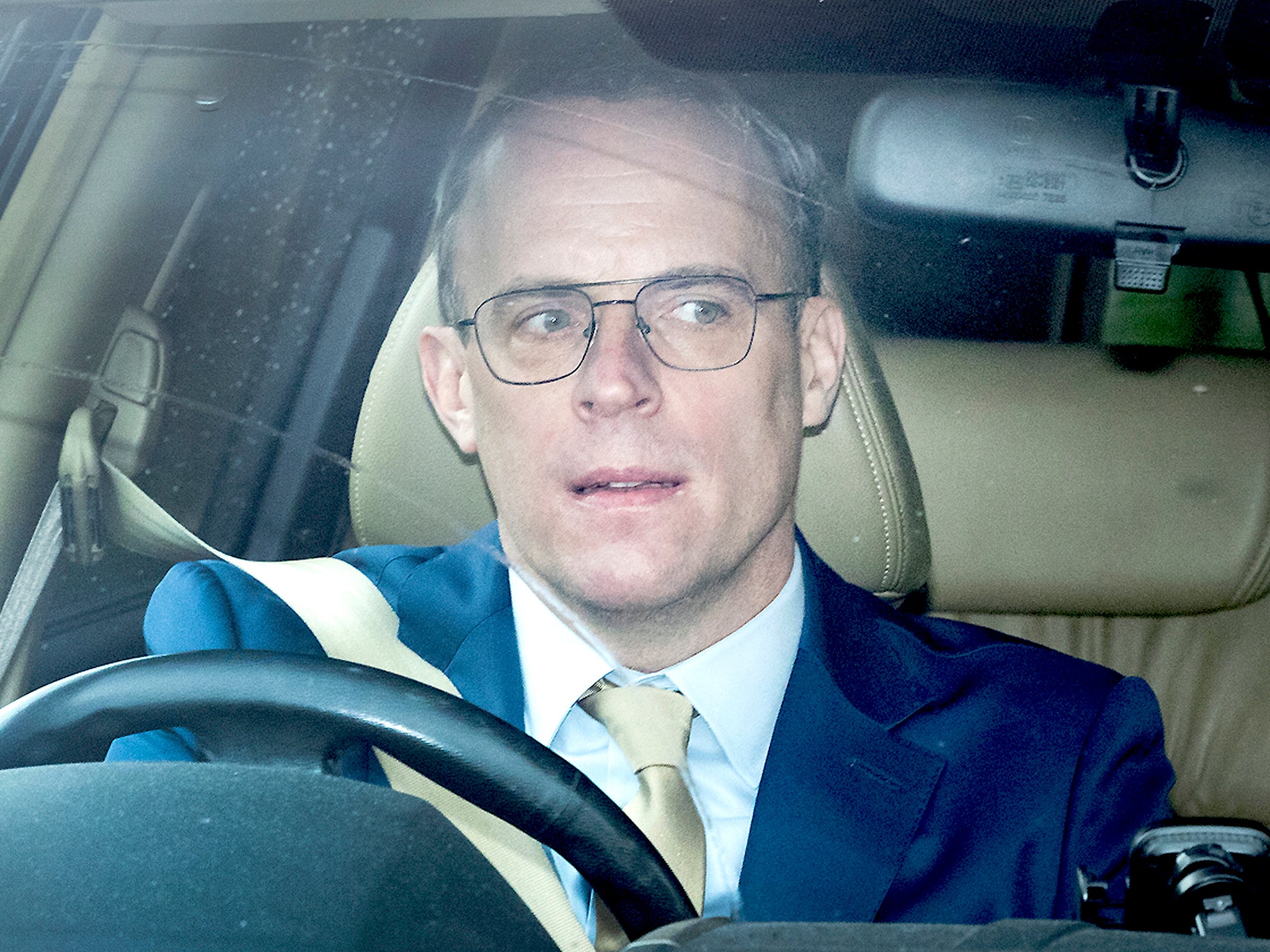
The report found Mr Raab had “acted in a way which was intimidating, in the sense of unreasonably and persistently aggressive conduct in the context of a work meeting”.
In one instance, his conduct was seen as “undermining or humiliating” by the complainant. “It is to be inferred that the DPM [deputy prime minister] was aware that this would be the effect of his conduct; at the very least, he should have been aware,” the report said, adding later: “On a number of occasions of meetings with policy officials ... the DPM acted in a manner which was intimidating.”
In his resignation letter, Mr Raab, who denied the allegations of bullying, said he felt “duty bound” to accept the outcome, but he warned that the investigation had set a “playbook for a small number of officials to target ministers” and that it would “encourage spurious claims against ministers” from within Whitehall.
“Ministers must be able to exercise direct oversight with respect to senior officials over critical negotiations conducted on behalf of the British people, otherwise the democratic and constitutional principle of ministerial responsibility will be lost,” he wrote.
He said the probe had dismissed “all but two” of the allegations against him, adding that he had also raised “a number of improprieties that came to light during the course of this inquiry”.
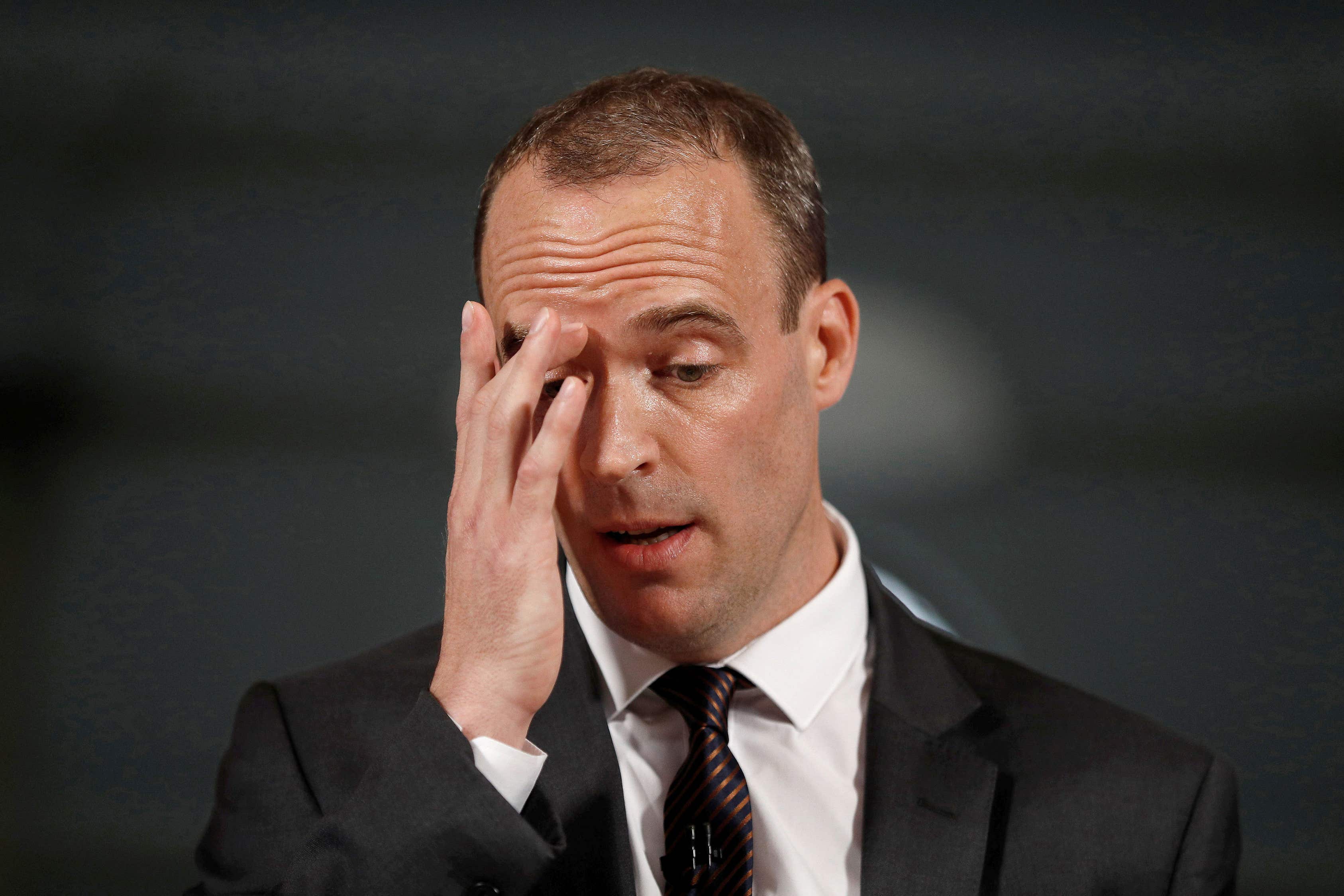
“They include the systematic leaking of skewed and fabricated claims to the media in breach of the rules of the inquiry and the Civil Service Code of Conduct, and the coercive removal by a senior official of dedicated private secretaries from my Ministry of Justice private office, in October of last year. I hope these will be independently reviewed,” he wrote.
He said he was “genuinely sorry for any unintended stress or offence” that officials had felt.
Mr Sunak accepted Mr Raab’s resignation, but spoke of “shortcomings” in the investigation process that had “negatively affected everyone involved”, and asked the Cabinet Office to review the processes for complaints against ministers.
The findings of Adam Tolley KC’s independent inquiry landed on the prime minister’s desk on Thursday morning, but it was not published until just before midday on Friday.
Mr Sunak faced an almost immediate backlash from his own backbenchers. In a pointed dig, former culture secretary Nadine Dorries said that “the least desirable qualities in any politician are disloyalty, weakness, self preservation and a lack of principle”.
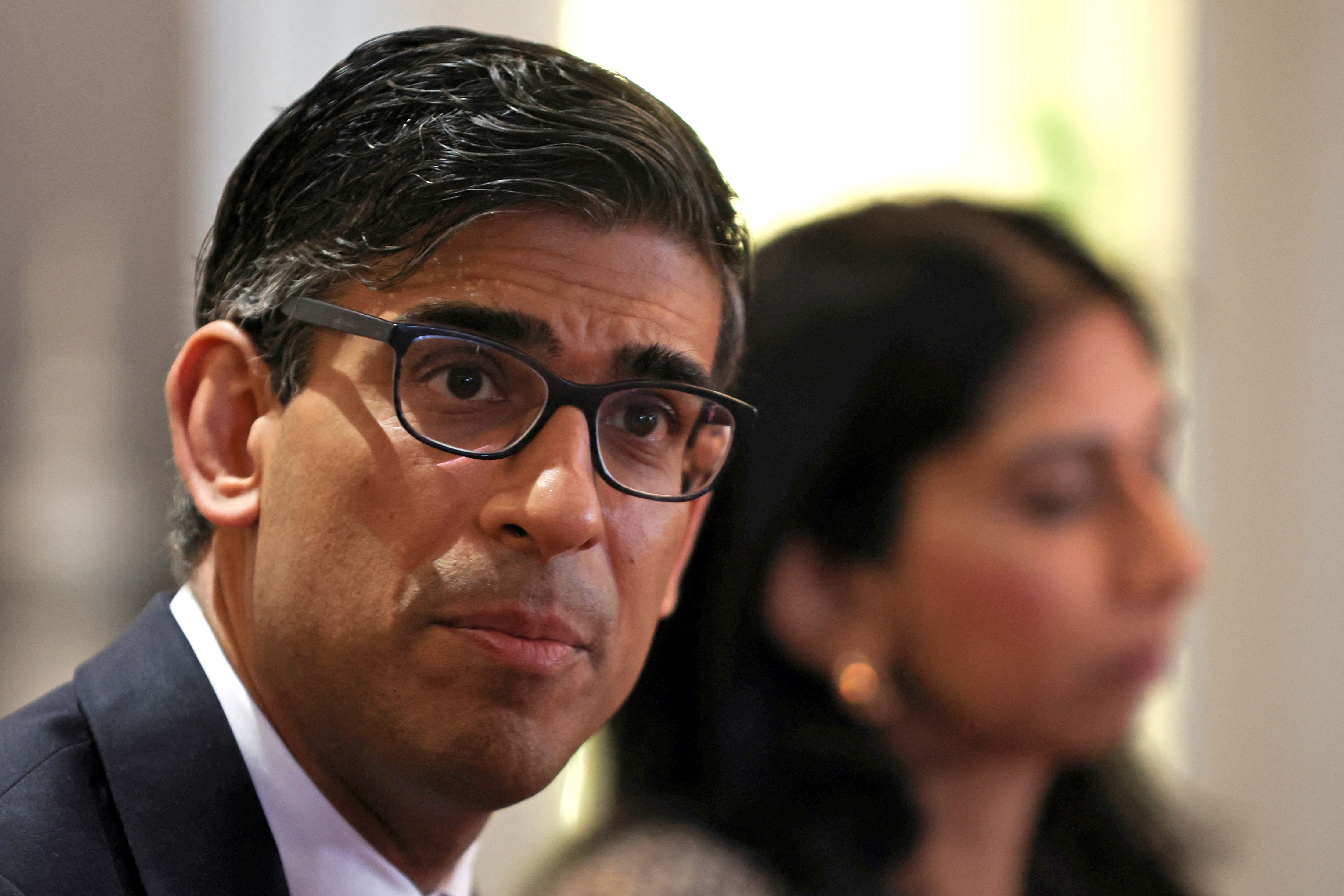
Tory MP Philip Davies agreed with Mr Raab, saying the findings would encourage “spurious complaints against ministers”.

Beaconsfield MP Joy Morrissey said the report’s findings mean the definition of bullying now “includes telling someone to do their job”.
Scarborough and Whitby MP Robert Goodwill said he was “very sad for Dom”, who he said “always comes across as a really genuine, decent guy”.
“If you’re determined to get things done, maybe you’re less than sympathetic to people who maybe don’t share that determination,” he told Times Radio.
But Sir Keir accused Mr Raab of “whining”.
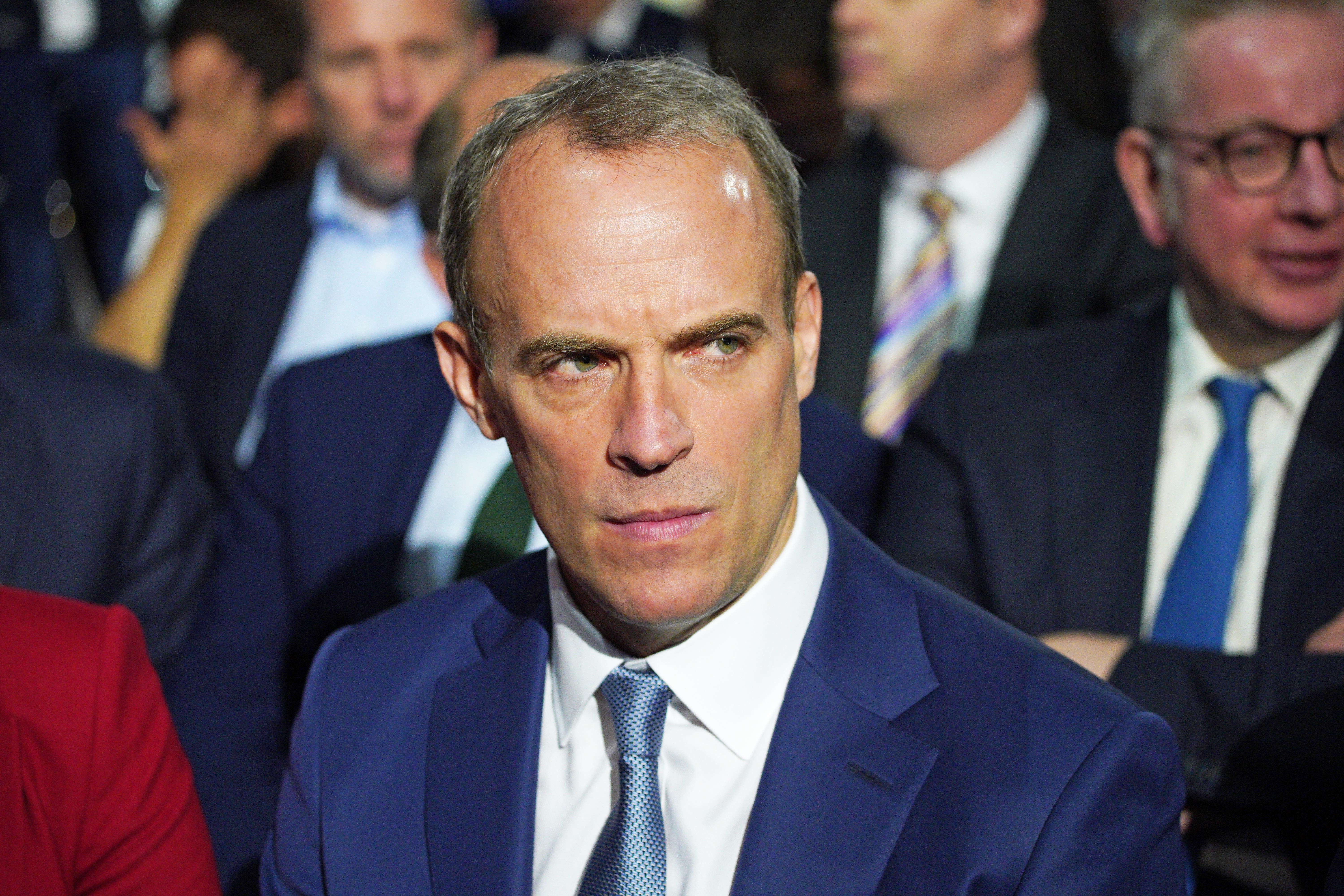
“I don’t know why Dominic Raab, in the middle of a cost of living crisis, thinks that anybody wants to hear his whining about having to resign,” he said. “What I think everybody wants is strong leadership, and that has been palpably absent here.”
The deputy PM has been under investigation since November over eight formal complaints about his behaviour when he was foreign secretary, Brexit secretary, and during his first stint as justice secretary.
Before his resignation, senior officials at the Ministry of Justice were said to be preparing to quit if Mr Raab was allowed to stay on.
It emerged in the heavily delayed register of ministerial interests, which was released on Wednesday, that Mr Raab had forked out for his own legal team to defend himself against the allegations.
The decision to pay for his lawyers came despite the taxpayer footing an estimated £222,000 bill for Boris Johnson’s legal fees in the Partygate inquiry into whether the former prime minister had lied to MPs.




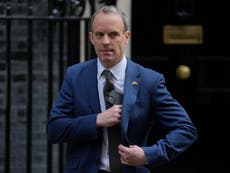


Join our commenting forum
Join thought-provoking conversations, follow other Independent readers and see their replies
Comments